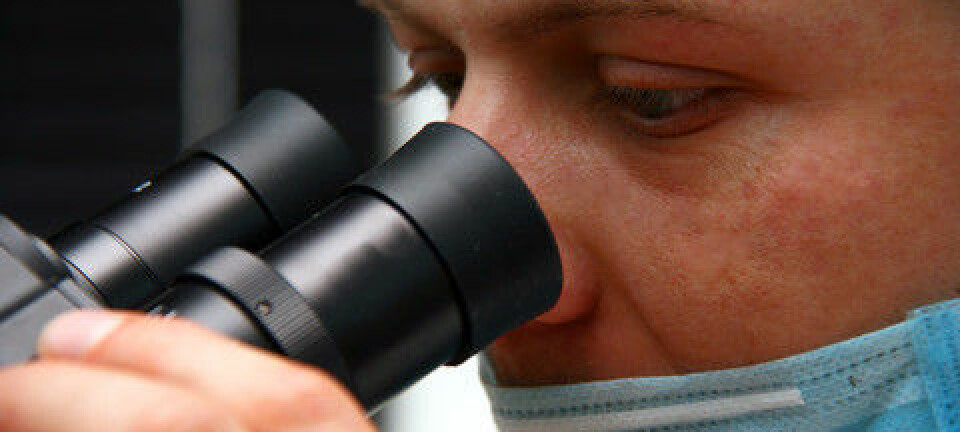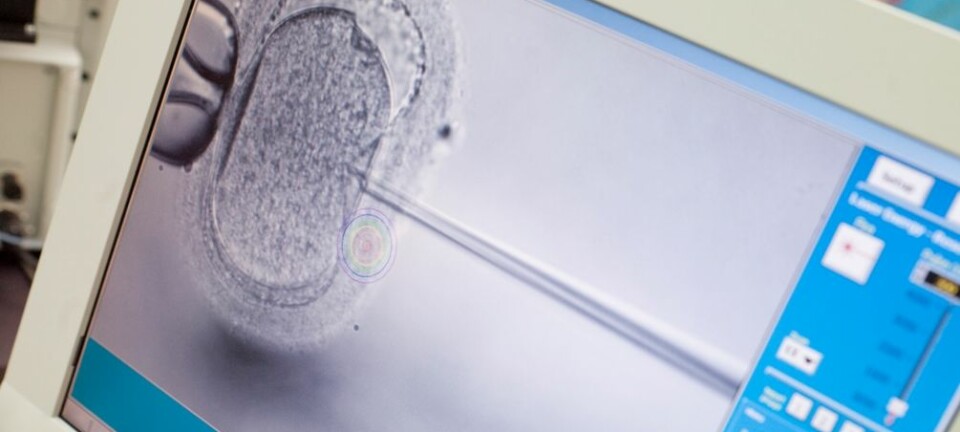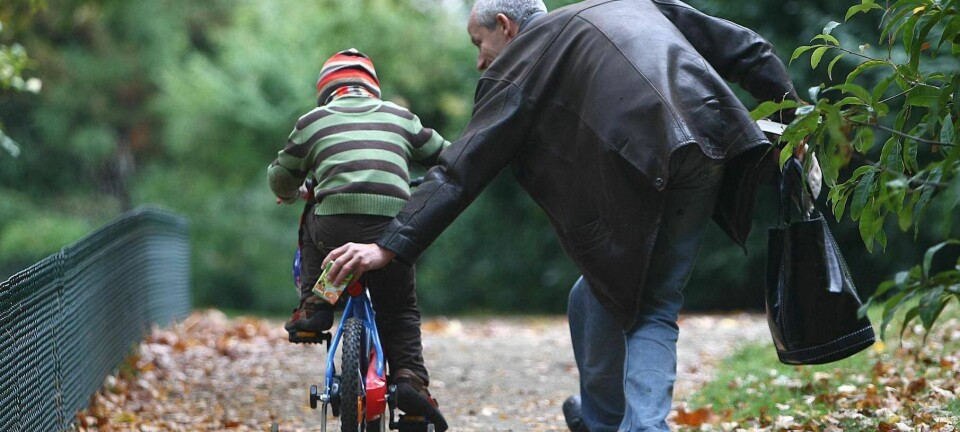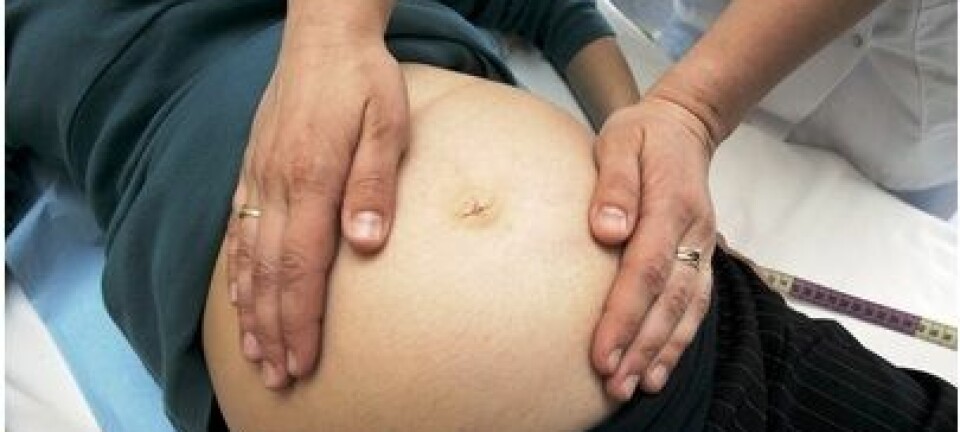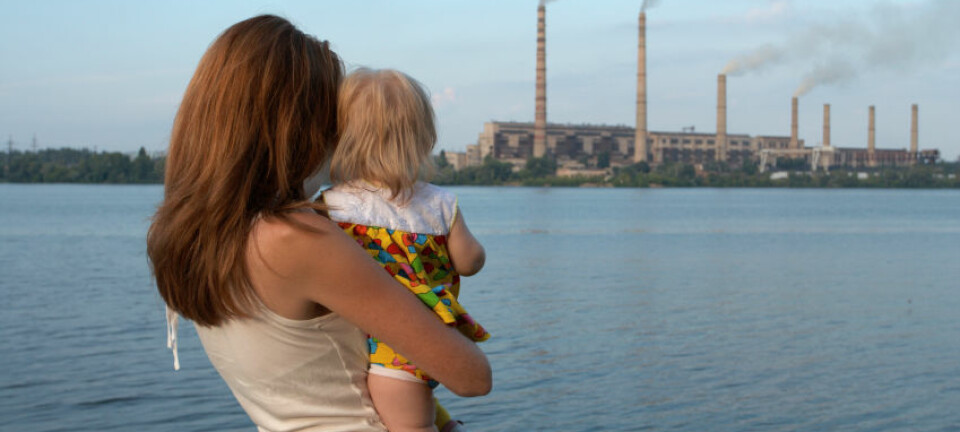
Childless couples have more divorces
Couples who receive treatment for fertility problems are up to three times more likely to end in divorce if they fail to produce a child.
When couples go to fertility treatment, they usually come with a burning desire to have a baby.
If this wish cannot be fulfilled, the couple has a far greater risk of becoming divorced than couples whose fertility treatment results in baby, according to a new study of 47,515 Danish women in fertility treatment.
“We can see that in the years immediately after the couple has been evaluated for infertility, they are around three times as likely to get divorced if the woman does not become pregnant and gives birth,” says the lead author of the study, Trille Kristina Kjær, a PhD fellow at the Danish Cancer Society Research Center.
Increased risk of divorce for 12 years
The new study shows that childless couples have an increased risk of leaving each other up to 12 years after they first contacted a doctor to be evaluated for fertility problems.
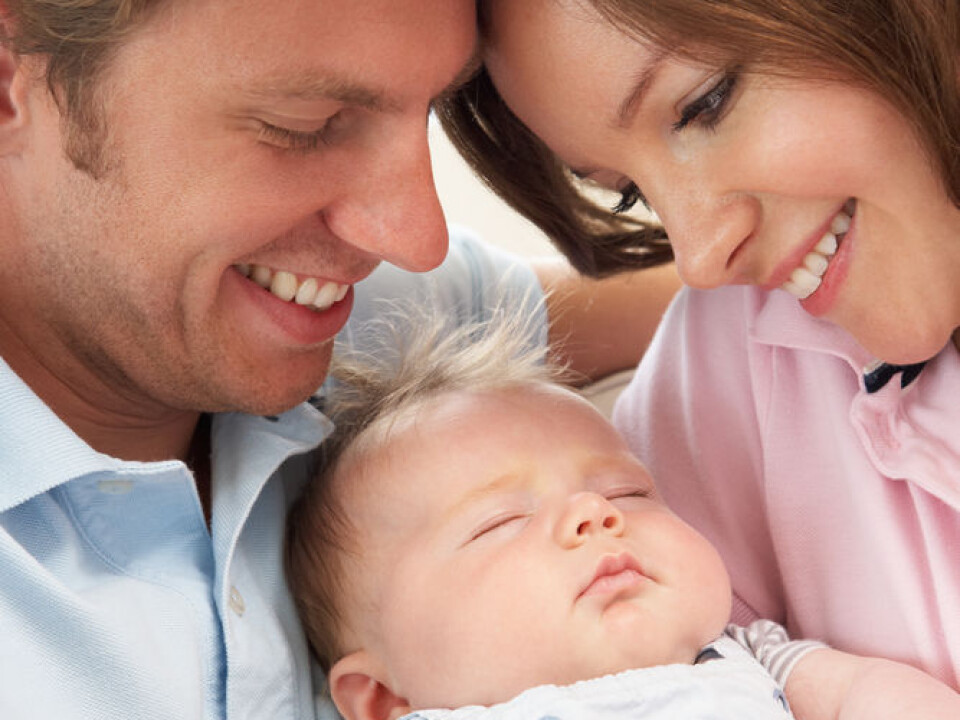
”We knew that fertility treatment is tough both physically and mentally. It’s very consuming and you think about it constantly,” says Kjær.
“But we were surprised to see that the effect lasted this long – up to 12 years after treatment we could see an increased risk of divorce if the couple did not have a baby.”
Register data tells parent history
The data in the new study came from several Danish administrative population-based registries, and also from public and private fertility clinics.
Using the women’s special Danish personal identification numbers, the researchers could compare all the data and thus see how each of the couples fared after treatment.
We can see that in the years immediately after the couple has been evaluated for infertility, they are around three times as likely to get divorced if the woman does not become pregnant and gives birth.
The childless couples’ likelihood of divorce turned out to be particularly high in the first years after being evaluated for infertility. In the first year, childless couples were more than three times as likely to get divorced as couples who had a baby.
After that, the ‘divorce risk’ curve flattened out, and after 12 years the researchers could no longer see a significant difference between couples who had babies and those who did not.
”This could indicate that if you get though the first 12 years, then you have reached a point where you have weathered the storm and are more likely to remain together,” says Kjær.
She is, however, keen to point out that there is not enough data in this study to say anything specific about how the relationships will fare more than 12 years after they had their first evaluation of infertility.
Why do infertile couples split up?
We knew that fertility treatment is tough both physically and mentally. It’s very consuming and you think about it constantly. But we were surprised to see that the effect lasted this long – up to 12 years after treatment we could see an increased risk of divorce if the couple did not have a baby.
So why is it that the inability to have babies leads to divorce and broken relationships?
This is a question that Lone Schmidt, an associate professor at the Department of Public Health, the University of Copenhagen, has looked at in a previous study where she interviewed childless couples and followed 2,250 fertility patients with questionnaires over a number of years. She did not take part in this latest study:
”Many of the parents we interviewed felt that their relationship was strengthened by going through fertility treatment together. But at the same time, they also said that the lack of children was the greatest threat to their relationship,” she says.
”The reason why it is such a great challenge is also that it opens up for the question whether you should stay with your partner or try to find someone else – especially if you know who cannot produce babies.”
Schmidt adds that the inability to have kids is a major stress factor that we – unlike with many other stress factors in our lives – are unable to control and do anything about, at least when the fertility treatment is unsuccessful.
What about the divorce risk in ‘regular’ parents?
An important thing to note about the new study is that it only looked at the likelihood of divorce and broken relationships in couples who have experienced problems with fertility.
The researchers did not study the divorce risk of couples who have children ‘the old-fashioned way’, i.e. couples who did not seek fertility treatment.
”We cannot directly compare the divorce rates in our study with the general population – the group of women in this study is too specific for that,” says Kjær.
”We therefore focused on couples who had been evaluated for infertility and we looked at what happens to those who have children and those who do not.
Only strong couples can handle fertility treatment
Other Danish studies indicate, however, that couples who have been in fertility treatment generally have a lower risk of divorce than couples who have children ‘the natural way’.
A study of parents of twins found that 13 percent of parents who had had twins ‘the natural way’ were divorced four years after the children were born.
The corresponding figure for parents who had had twins through fertility treatment was seven percent.
”We believe this is linked to the apparent fact that it is predominantly strong couples who seek fertility treatment – there is simply a selection among the couples before they seek treatment. This is also supported by our interviews and questionnaires, where people tell us that their relationships are strengthened by undergoing treatment of infertility,” says Schmidt.
“Roughly speaking, we don’t believe that ‘weak’ relationships can survive fertility treatment.”
-------------------
Read the Danish version of this article at videnskab.dk
Scientific links
- Divorce or end of cohabitation among Danish women evaluated for fertility problems', Acta Obstetricia et Gynecologica Scandinavica, 2014, DOI: 10.1111/aogs.12317
- Morbidity in a Danish National cohort of 472 IVF/ICSI twins, 1132 non-IVF/ICSI twins and 634 IVF/ICSI singletons: health-related and social implications for the children and their families', Human Reproduction, 2003, DOI: 10.1093/humrep/deg257
